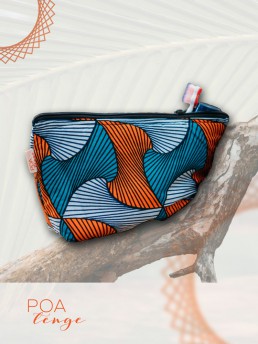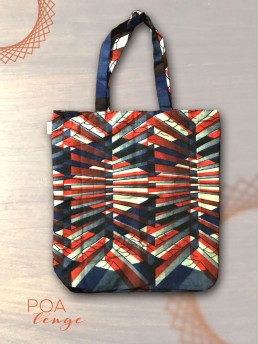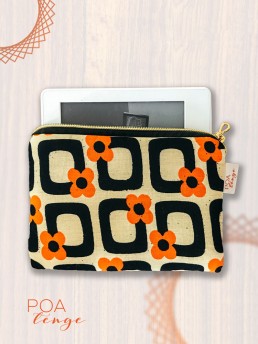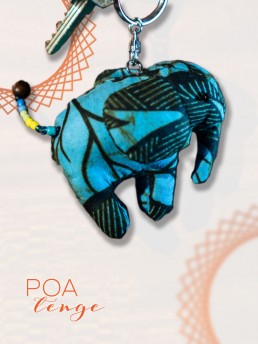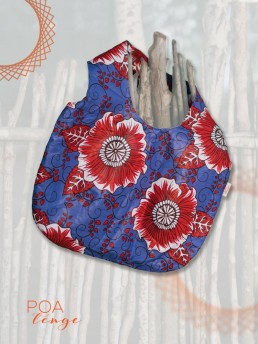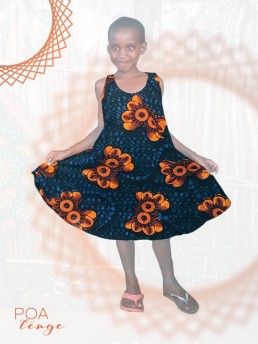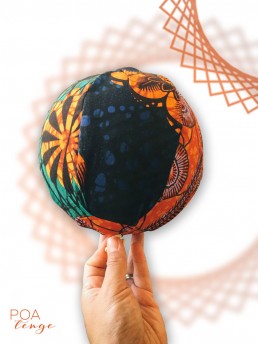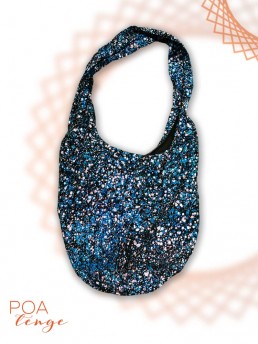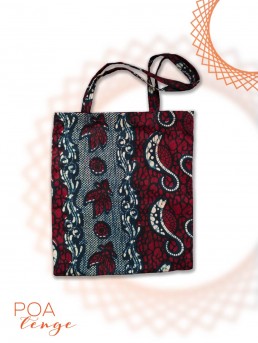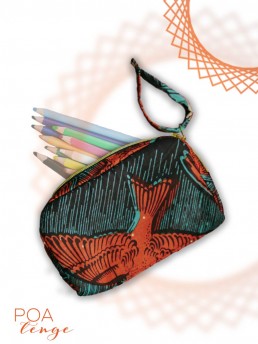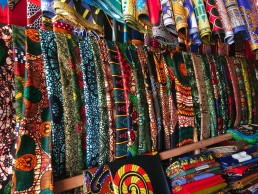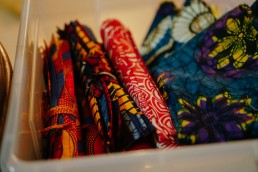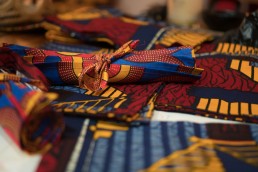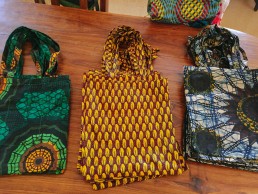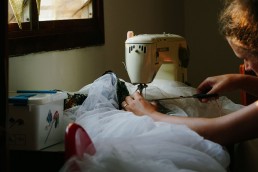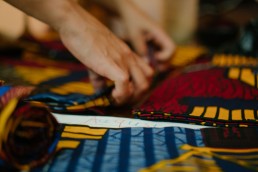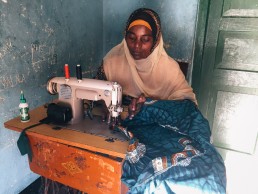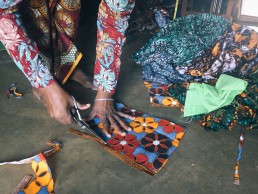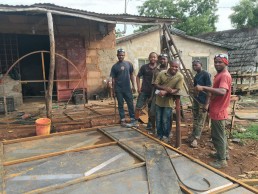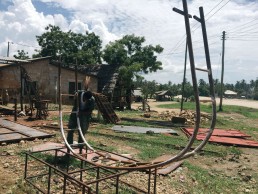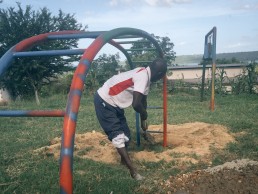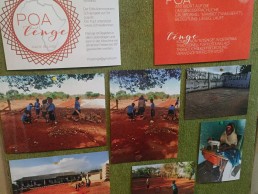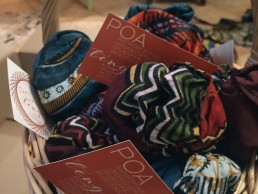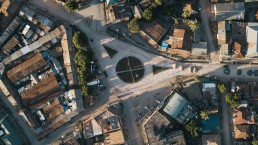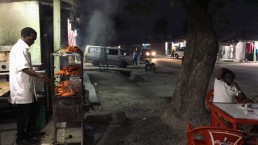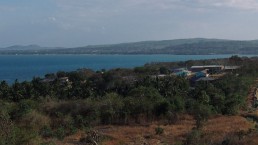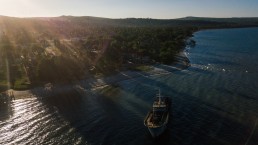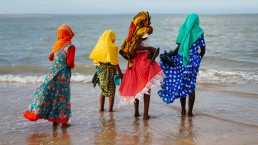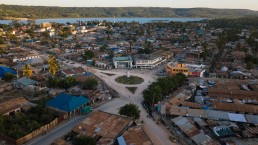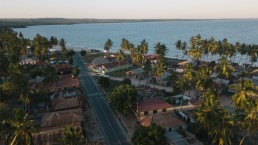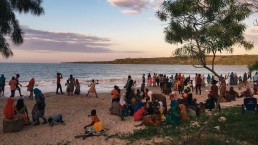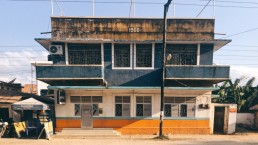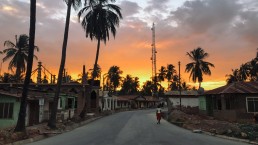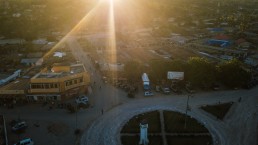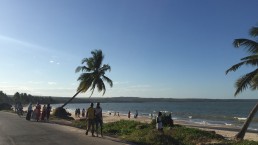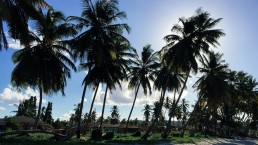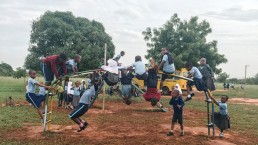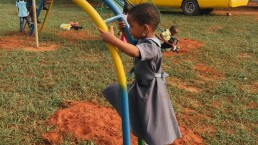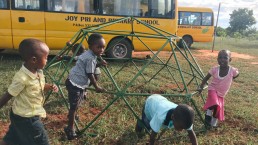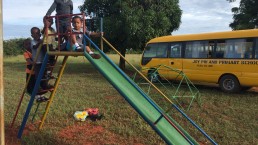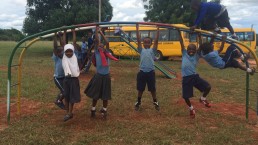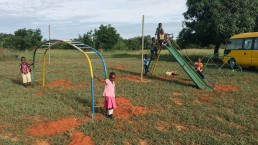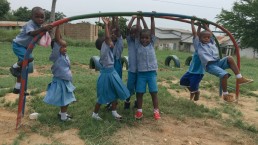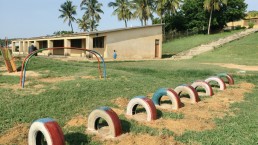Poatenge – a small sewing project founded by German and Tanzanian project partners. All of our products are completed by local tailors in Lindi. The profits gained from our products are used to create, build and purchase playground equipment for primary and pre schools in Lindi, Tanzania. All of the equipment is produced and manufactured by welders in Lindi, Tanzania.

Answer to the colloquial greeting “Mambo” (“Whats up?”); meaning: everything is easy-going, no problem.
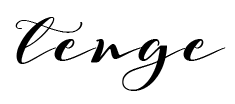
Comes from “Kitenge”; Kitenge is a piece of cotton fabric (size 45 x 84 inches, corresponds to 114 x 213 cm) which is traditionally used as clothing, a baby sling, headwear, bed linen or a backpack. Poatenge uses 100% cotton Kitenge only.
Karibu – the Poa Story
How it all began… in December 2016 my family and I decided to move to Lindi, a small town in southeast Tanzania. My husband had a job offer to work as a pediatrician and development adviser at the local hospital. We had been looking for a chance like this for some time, so we decided to accept the challenge! Shortly after we made our decision I took part in two training courses to learn how to sew. By doing so I was hoping to develop some helpful skills which could be useful during our time in Tanzania. I felt that this training could serve as a personal activity for myself or maybe as a foundation to start a little sewing project while in Lindi. When living in Mozambique some years ago (Beira, 2008) I experienced the East African way of having clothes done by tailors rather than buying them already made in clothing stores. I have loved the colorful patterns of the fabric ever since and began to wonder how I could use it in the future. After the sewing courses I got myself an old, but very robust and easy to maintain sewing machine (Bernina, made in 1965) which safely arrived in Lindi by air freight.
Shortly after our arrival in Lindi I went to check out the fabric stores in town. It took me some time, but with the help of my always friendly and patient seller I learned about the differences between Kanga, Kitenge, Jawa, waxed fabrics, fabrics from the Netherlands and China and fabrics from Tanzania and Nigeria. In December of our first year in Lindi I even found Kitenge made in Lindi! With the different fabrics I started to develop prototypes and took them to a recommended tailor.
Just in time for Christmas we managed to complete a variety of our first Poatenge products, which my mother and sister sold at different Christmas markets in Germany. With the profit of the first sales we were able to provide playground equipment to the Joy Primary School in Lindi. The donated equipment brings great joy to the students as they play on it everyday! With Joy School as the start, we are carrying it on!
Lindi, May 2018
Wiebke, Founder.
The PoaTenge Team
Project management, product development, communication, and marketing: Wiebke
Production: Mwajuma Nangomwa, tailor, is supported by her niece and two trainees
Local Coordinator Management and Communication in Lindi: Mwajuma Chimela
Manufacturing and set up of the playground equipment: John Hamisi Rashidi, metalworker with his team (3 metalworkers and 2 trainees)
Design, photos, and technical support: Philipp
Sales and marketing Germany: Antje & Marita
Lindi
Lindi (9° 59’49’’ S, 39° 42’59’’ E) is the capital of the correspondent region in the Southeast of Tanzania. Lindi is located on the coast of the Indian ocean between Dar es Salaam and Mozambique. With 4,000 inhabitants, the city was founded in the 17th century as an important trading center for Arabian-Zanzibarian caravans of slaves and ivory. Subsequently, German colonialists used Lindi as their headquarters. The former seat of government known as the “German Boma“ remains only a ruin at the beach today. In 1950 Lindi lost its importance, as Mtwara situated about 80 km south, became the new capital of the southeastern region of Tanzania. Subsequently, Lindi and its harbor became less significant.
Today the majority of Lindi’s 45,000 inhabitants live off a subsistence economy; some are gaining income from fishing activities, selling coconuts, fruit and vegetables. In former time, the region was an important spot for sisal growing (especially Kikwetu, about 15km North of Lindi). Today the only economy with small importance for the international market is the cashew nut industry. Nationwide there are 200,000t produced per year, of which 80% is exported unprocessed (see Forbes article here).
School system in Tanzania
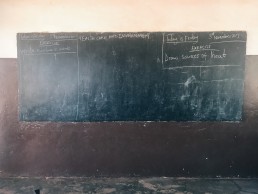
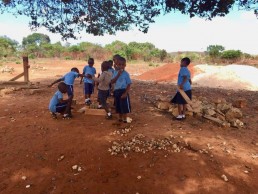
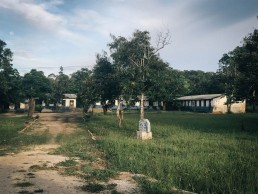
Depending on the financial stability of the parents, a child’s school career begins with two years of nursery and preschool. Starting with primary school the school attendance is obligatory in Tanzania. With the exception of school uniforms, maybe transport and food as well as writing utensils the Government Primary Schools are free of charge. Due to very large classes (up to 100 pupils per one teacher), mostly very poor building conditions, lack of teaching material and teacher training, Tanzanian Public schools can be described as, at the least, problematic. Also, the salary and the social status of teachers is very poor. This unfortunately contributes to the general attitude of society that a career in teaching would be the last option for anyone who fails the national exams
(see Report from FAHAMU, last checked 22.03.2018).
Primary school goes from Standard 1 up to Standard 7. Students are taught almost exclusively in Kiswahili. Only about 10% of Primary School graduates carry on to Secondary School which goes from Form 1 to Form 4. Secondary Schools are supposed to teach in English only. Depending on the final grades students have the possibility to carry on with two years of advanced level education, Form 5 and 6. These two forms are taught at gender specific boarding schools only.
Who profits from PoaTenge?
First of all we aim to satisfy our customers! Locally, Poatenge supports our local tailors by providing regular and reliable income.
A large portion of the proceeds from Poatenge is used to build and purchase playground equipment for pre and primary schools in Lindi MC. Due to a lack of child care the pupils spend a lot of time on their school site without mentoring or supervision. The pupils are left for themselves, but the provided playground equipment is an opportunity to play in a safe environment. There is no maintenance needed and the playground equipment does not have to be set up before nor stored after using.
The devices are manufactured in a welding shop in Lindi. After completion they are cemented into the ground. In comparison to wood, metal is a much more, long lasting and reliable building material. The playground equipment is stable and will not be eaten by termites or destroyed by the challenging climate.
